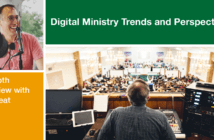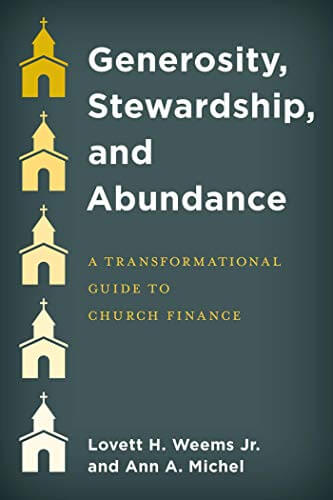Nate Berneking says testimonies about giving and money are powerful when done well, but disastrous when done poorly. He outlines how an interview approach to testimony can keep things focused and on track.
Talking about giving and money through testimonies in church can be powerful. But as a pastor who has frequently attempted them, I can honestly say that they work great when done well, and are disastrous when done poorly. Sometimes these testimonies take the form of a leader taking the mic in worship, speaking of how much he or she loves the church, how badly the church needs more money, and how hopeful he or she is that others will start giving in the same way. People uncomfortable with speaking in front of groups stammer around, lose their place, and confuse listeners. If you’re a pastor or leader who has responsibility for worship, please don’t allow that. Don’t do it to people, and don’t do it to the speaker.
We began to make people more comfortable in talking about generosity. Such talk is the beginning of the vulnerability needed for a congregation to really grow, mature, and become more generous.
Those who’ve not been trained to speak and develop a solid theology of generosity simply aren’t equipped. They need help. Instead of just asking someone to talk about giving in church, try an interview. More critically, practice the interview with the person.
After many failed attempts at creating an environment rich in congregational testimony, I started taking ten minutes of worship (all out of my sermon), setting up two tall chairs in the chancel or on the stage, and inviting a person into a conversation in front of the church. We’d rehearse it the week before. I’d start with questions like, “Why don’t you share a little about your family and how long you’ve been coming to the church?” I’d then get specific. “One ministry in particular has made you very passionate. Could you share a little of that?” Finally, I’d turn to generosity. “You’ve not only been giving your time to that ministry, but you’ve been giving generously to the church as a whole. Could you say why you do that? I’d end by turning it back to the congregation. “How do you think your giving is supporting God’s work?” Or “What is your greatest hope for what God might do with the gifts you give?” or even better, “How do you feel your life is better because of your generosity?
I always had a target I wanted the person to hit, and I always helped them make sure they hit it. I didn’t invent the target; the person(s) being interviewed did. Though sometimes I made suggestions. We worked out the target in rehearsal or advance conversations. I knew what they were going to say before they said it, and because of that, if they got nervous, I could help them. In those sort of testimonial interviews, we held up miraculous transformations that had taken or were taking place. I was able to highlight amazing things that other people were doing, often without anyone else in the congregation knowing they were doing it.
When you have the resources, video works even better. Strong emotions can be evoked with music, and the kernel of a person’s testimony can be distilled and presented in obvious ways. The church I last served was just on the cusp of having sufficient resources to do video well. Usually, we’d produce quality video for special Sundays, using interviews through the year. In taking that strategy, we began to make people more comfortable in talking about generosity. Such talk is the beginning of the vulnerability needed for a congregation to really grow, mature, and become more generous.
Talking about money is the only way to name our edges that need growth. Small groups, open talk of finances and generosity, and healthy information discussions can all follow testimonies, enhancing growth and leading toward greater health.
Excerpted from The Vile Practices of Church Leadership: Finance and Administration (Abingdon Press, 2017) by Nate Berneking. Used by permission. The book is available at Cokesbury and Amazon.
Related Resources
- 50 Ways to Improve Your Annual Stewardship Campaign a free resource from the Lewis Center
- Overcoming the Fear of Talking About Money by Cathy Abbott
- 7 Key Questions for Fundraising with Spiritual Integrity by Ann A. Michel







